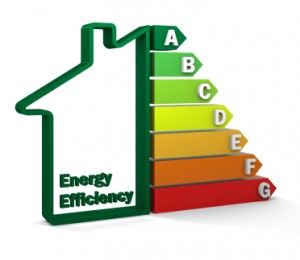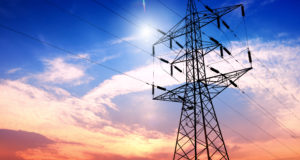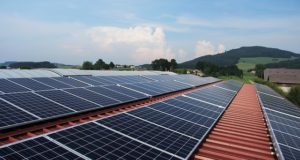 Many articles have discussed various forms of alternative energy but have spent little time educating people on how to live with alternative energy sources. As a society, we are conditioned to flip switches and not worry about whether there’s enough power for the lights to come on. Living off the grid makes it necessary to break that habit.
Many articles have discussed various forms of alternative energy but have spent little time educating people on how to live with alternative energy sources. As a society, we are conditioned to flip switches and not worry about whether there’s enough power for the lights to come on. Living off the grid makes it necessary to break that habit.
With alternative energy, be it solar, wind, or water, there is a finite amount of power that can be interrupted by outside factors. Solar is perhaps the most easily disrupted of the three power sources listed, but even hydro power can be reduced or cut depending on weather conditions. Learning to conserve energy is the key to living with these power sources.
A home energy audit is a good starting point, and you can either hire a professional or perform the test yourself. Find out where your house leaks heat, and upgrade the insulation in those areas. If your house has an attic, install an attic fan to help with cooling in the summer. If you currently use electricity for heat, find an alternative before removing your house from the grid. Wood pellet stoves, wood stoves, and combination wood-oil or wood-gas furnaces are excellent options.
Replacing your light bulbs with energy-efficient CFL bulbs will help lighten your house’s electric load. CFL bulbs require about one-fourth the power that incandescent bulbs need, and they last longer. For outside lighting, install motion triggers. This will turn lights on only when they’re needed. To conserve more power on night-time lighting, use LED lights. You can find LED nightlights for interior use and LED spotlights for exterior use. While they can be a more expensive option than regular light bulbs, they use less power and are much more durable.
You can further reduce your home’s electric load by unplugging chargers and appliances when they’re not in use, and by installing and using power strips for appliances and home theatre systems – turn the strips off when not in use, or use smart strips that automatically cut power to unused appliances.
The largest power guzzler, aside from home heating or cooling systems, is your water heater. Along with upgrading and insulating a modern and efficient water heater, you can purchase a point-of-use system and locate it underneath your kitchen sink. This allows you to have nearly immediate access to hot water for dishwashing or cooking, and is a more energy-efficient means of heating water for the kitchen. You can also go with a completely tankless hot water system for your entire house – this type of system can cut water heating costs in half. Regardless of what hot water system you use, make sure all hot water pipes are insulated to prevent heat loss.
Ensuring that your appliances are new, efficient models will also help reduce your electric load. If you have a dishwasher, turn off the “Heat Dry” option and let the dishes air dry, or dry them with a towel. If you have a washing machine, wash using cold water to reduce the amount of power used by the machine, and make sure to line dry all clothing. Using “hot” or “warm” cycles on your washing machine can more than double the electricity it uses.
If your water runs off a well and you need electricity to run a pump, consider adding faucet aerators to your sink taps and shower. The aerator will reduce the amount of water pumped and used while still providing a decent amount of water pressure. Another way to reduce the amount of water you use is to drop a brick — or a plastic bottle filled with water or sand — into your toilet’s water tank. This will lower the amount of water your toilet uses for a flush and will also help reduce the load on your water pump and septic tank.
If you’re cooking a meal, use a crock pot or slow cooker instead of the stove or oven. Crock pots use a fraction of the energy required by a stove and won’t overheat your kitchen during hot summer weather. Also in the kitchen, make sure to perform routine maintenance on your refrigerator and clean its condenser coils every three months to improve its efficiency. Use a fridge thermometer to check the temperature, and make sure that the fridge stays between 37° and 40° Fahrenheit. If it’s colder than that, the fridge is using more power than is necessary.
Finally, consider springing for a new coat of paint. There’s an insulating paint on the market that will help your house maintain its interior temperature. You can purchase interior and exterior versions of the paint, and it’ll help reduce your overall heating costs.
These suggestions are intended to help you reduce your electricity requirements so you can easily adapt to living off the grid. Make sure to check your electricity requirements before determining what type of alternative energy system you want to install. A hybrid system provides the most stable energy platform, and should be sufficient for all your household needs as long as you monitor and control your electricity usage.
—————————————————————————————————–
Slash your lighting bill by 90%
And Don’t Change Another Light Bulb for 40 Years!
—————————————————————————————————–
 Off The Grid News Better Ideas For Off The Grid Living
Off The Grid News Better Ideas For Off The Grid Living



